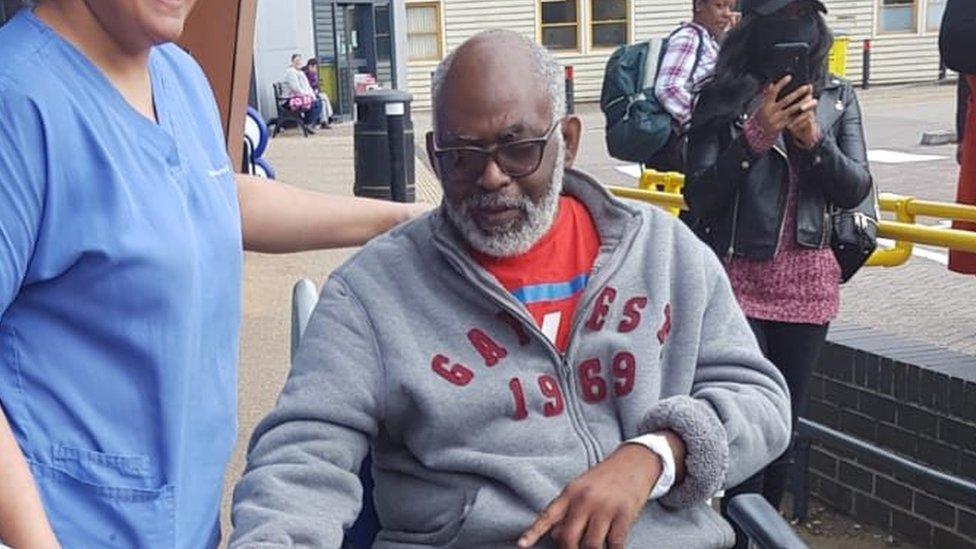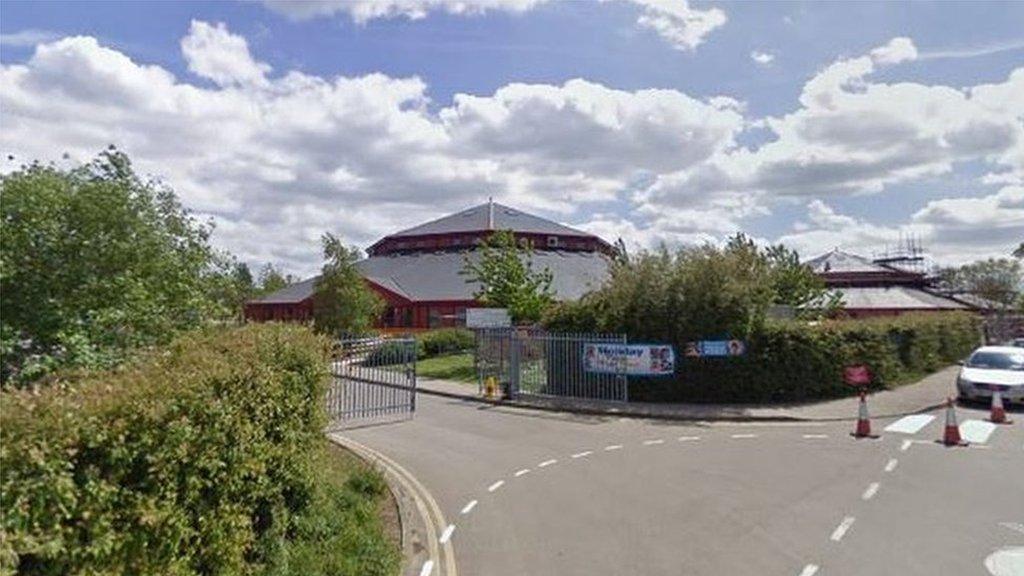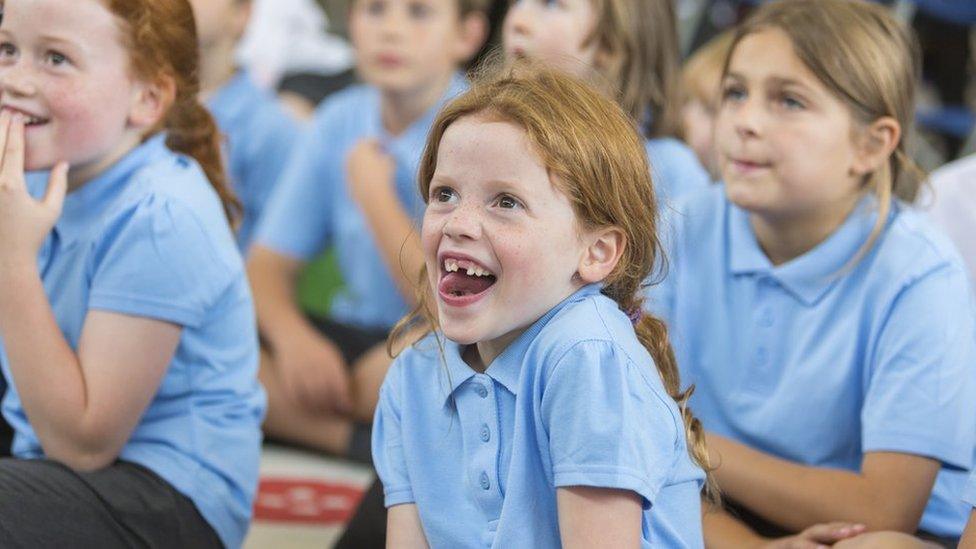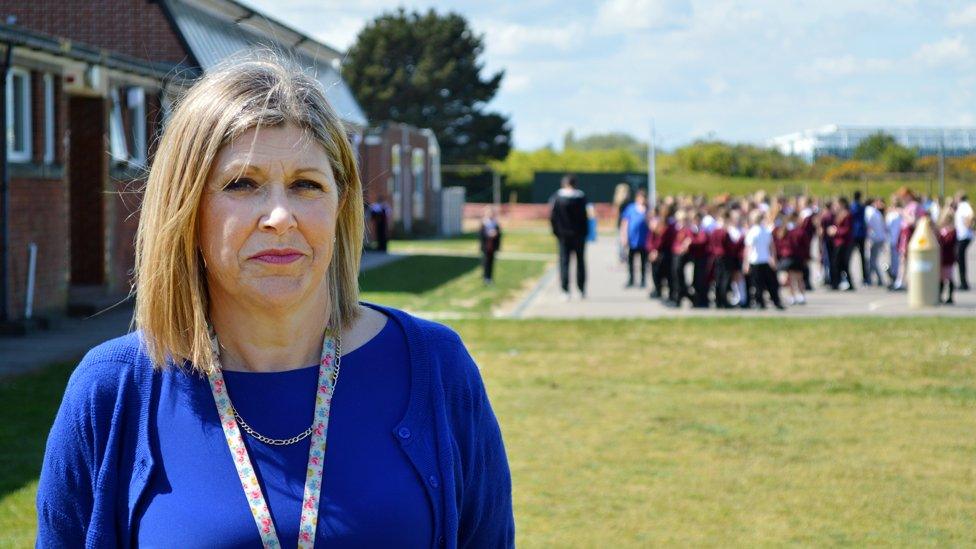Coronavirus: Hospital's 'sickest patient' returns home
- Published
Pastor Biya Ajala described as hospital's 'sickest' patient has been discharged
A coronavirus patient who recovered despite his wife being warned there was nothing more that could be done for him is recovering at home.
Pastor Olabiyi Ajala, 59, was put on a ventilator at Milton Keynes Hospital and was too sick to be transferred to a specialist heart and lungs unit.
But he responded to treatment and was discharged last week.
"Because of my faith I have always had the perspective that life is very fragile," Mr Ajala said.
"This has underscored that for me.
"You can't take anything you have for granted, you must live life meaningfully and you must appreciate what you have. I am very grateful."
Mr Ajala said his voice was "going" when he led a church service via videolink on 29 March and his symptoms had worsened by the end of two weeks of self-isolation.
He was admitted to hospital and within two days was in an induced coma in intensive care, where he would spend the next three weeks.

Biya Ajala was severely ill with Covid-19
His wife Esther said the hospital described him as their sickest coronavirus patient and said he was too poorly to be transferred to the Royal Brompton Hospital in Chelsea for specialist treatment.
"I got a phone call on 24 April - what I call the pre-death call - to say there was nothing else they could do," she said.
"They were trying to let me know how ill he was, they were trying to prepare me for the worst."
Mr Ajala became more stable and by the following week was able to come off the ventilator, to blink in response to questions and squeeze a nurse's finger.
He could not recall the lockdown and found it "very tough" to be without his loved ones.
"It was confusing - I couldn't remember why I was there, where my family was, why I was in [intensive care]," he said.
The couple praised hospital staff and said they were "very kind" to read scriptures to Mr Ajala, sent in by his wife.
"They understood that if it wasn't for Covid-19 I would be there by his side, so they wanted to do everything that I would have done.
"We were praying to him and we have a large community who joined up in prayer, 24 hours a day.
"Our faith kept us positive and we held on to that."

A SIMPLE GUIDE: How do I protect myself?
AVOIDING CONTACT: The rules on self-isolation and exercise
LOOK-UP TOOL: Check cases in your area
MAPS AND CHARTS: Visual guide to the outbreak


Find BBC News: East of England on Facebook, external, Instagram, external and Twitter, external. If you have a story suggestion email eastofenglandnews@bbc.co.uk, external
- Published14 May 2020

- Published15 May 2020

- Published14 May 2020

- Published13 May 2020

- Published7 May 2019
